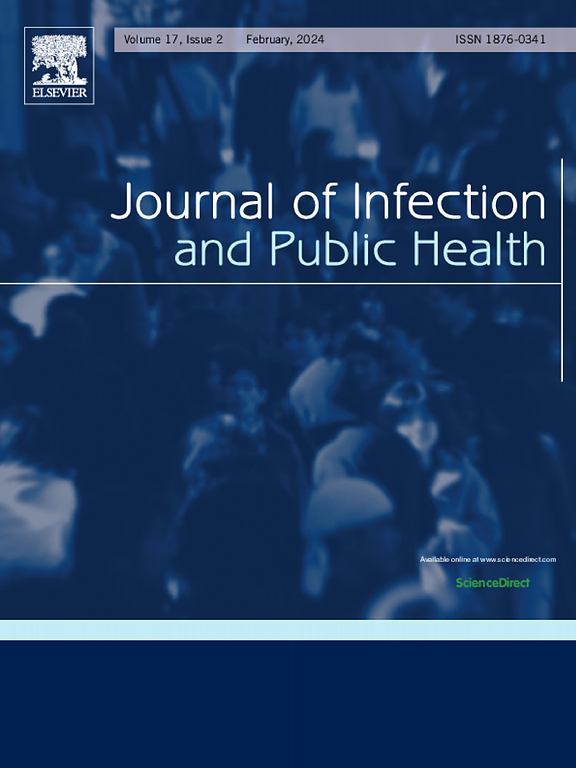Long-term assessment of anti-SARS-CoV-2 antibody levels post-pandemic: Tracking the dynamics after two, three, and four COVID-19 vaccine doses
IF 4.7
3区 医学
Q1 INFECTIOUS DISEASES
引用次数: 0
Abstract
Background
Given the limited available data about to the number of vaccine doses administered over an extended time in Iran, the immune status of vaccinated individuals and any potential disparities in this regard among those who received different numbers of vaccine doses remain unknown. Therefore, this study aimed to assess humoral immunity of individuals who received different doses of the COVID-19 vaccines in Iran.
Methods
This study was conducted from February, 2022 to December 2023 including 605 vaccinated subjects. The durability of anti-spike, anti-nucleocapsid (NCP), neutralizing antibody, and interferon-γ (IFN-γ) was evaluated at least 6 months after the last vaccination, as well as 60 and 120 days after it, in individuals who received two or three doses of the COVID-19 vaccine. Furthermore, the evaluation of humoral and cellular response was performed before the fourth dose (second booster) as well as 21 and 60 days thereafter.
Results
The 3-dose group showed significantly higher levels of anti-spike, neutralizing antibodies, and IFN-γ compared to the 2-dose group. Both the 2-dose and 3-dose groups experienced a slight decrease in the dynamic of SARS-CoV-2 Abs, though the associated levels remained within a positive range. After receiving the fourth dose of PastoCovac, most participants had significantly high levels of anti-spike, neutralizing antibodies, and IFN-γ, regardless of the type of three-dose regimen they had previously received. The average antibody titer decreased after 60 days from the fourth dose, but remained relatively stable during the follow-up period.
Conclusion
This study found that the level of anti-SARS-CoV-2 antibodies and IFN-γ, as well as their durability, were still within a positive range in 2-dose and 3-dose vaccinated groups over the long-term follow-up. Furthermore, PastoCovac vaccine enhanced humoral and cellular immune responses and could be recommended as a booster dose for individuals previously vaccinated with any previously administered COVID-19 vaccine.
求助全文
约1分钟内获得全文
求助全文
来源期刊

Journal of Infection and Public Health
PUBLIC, ENVIRONMENTAL & OCCUPATIONAL HEALTH -INFECTIOUS DISEASES
CiteScore
13.10
自引率
1.50%
发文量
203
审稿时长
96 days
期刊介绍:
The Journal of Infection and Public Health, first official journal of the Saudi Arabian Ministry of National Guard Health Affairs, King Saud Bin Abdulaziz University for Health Sciences and the Saudi Association for Public Health, aims to be the foremost scientific, peer-reviewed journal encompassing infection prevention and control, microbiology, infectious diseases, public health and the application of healthcare epidemiology to the evaluation of health outcomes. The point of view of the journal is that infection and public health are closely intertwined and that advances in one area will have positive consequences on the other.
The journal will be useful to all health professionals who are partners in the management of patients with communicable diseases, keeping them up to date. The journal is proud to have an international and diverse editorial board that will assist and facilitate the publication of articles that reflect a global view on infection control and public health, as well as emphasizing our focus on supporting the needs of public health practitioners.
It is our aim to improve healthcare by reducing risk of infection and related adverse outcomes by critical review, selection, and dissemination of new and relevant information in the field of infection control, public health and infectious diseases in all healthcare settings and the community.
 求助内容:
求助内容: 应助结果提醒方式:
应助结果提醒方式:


